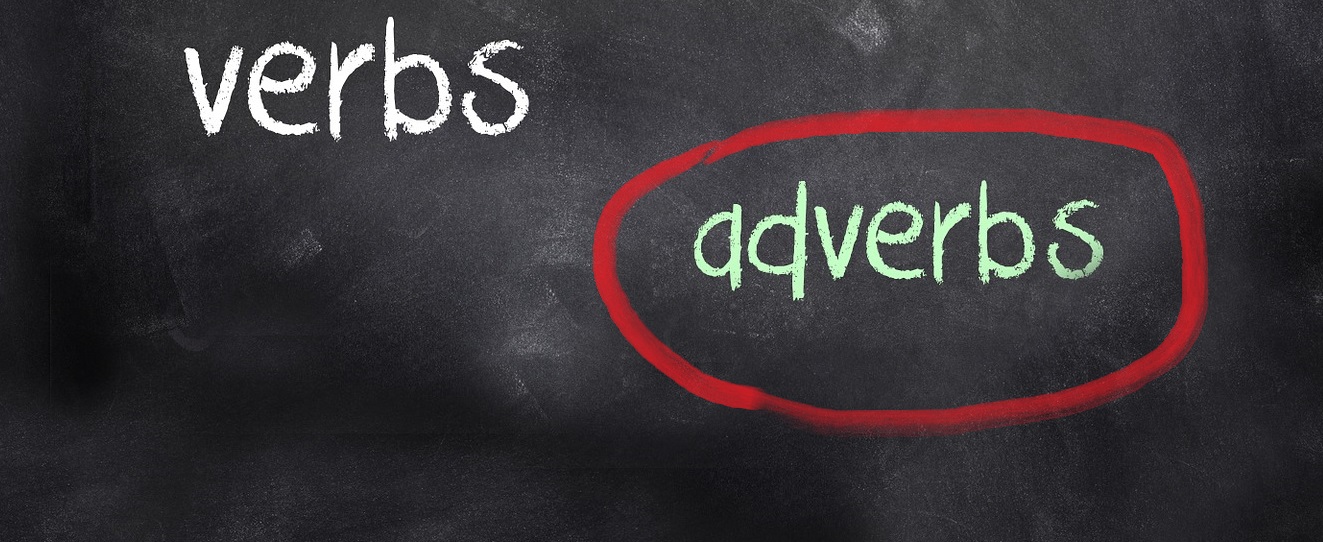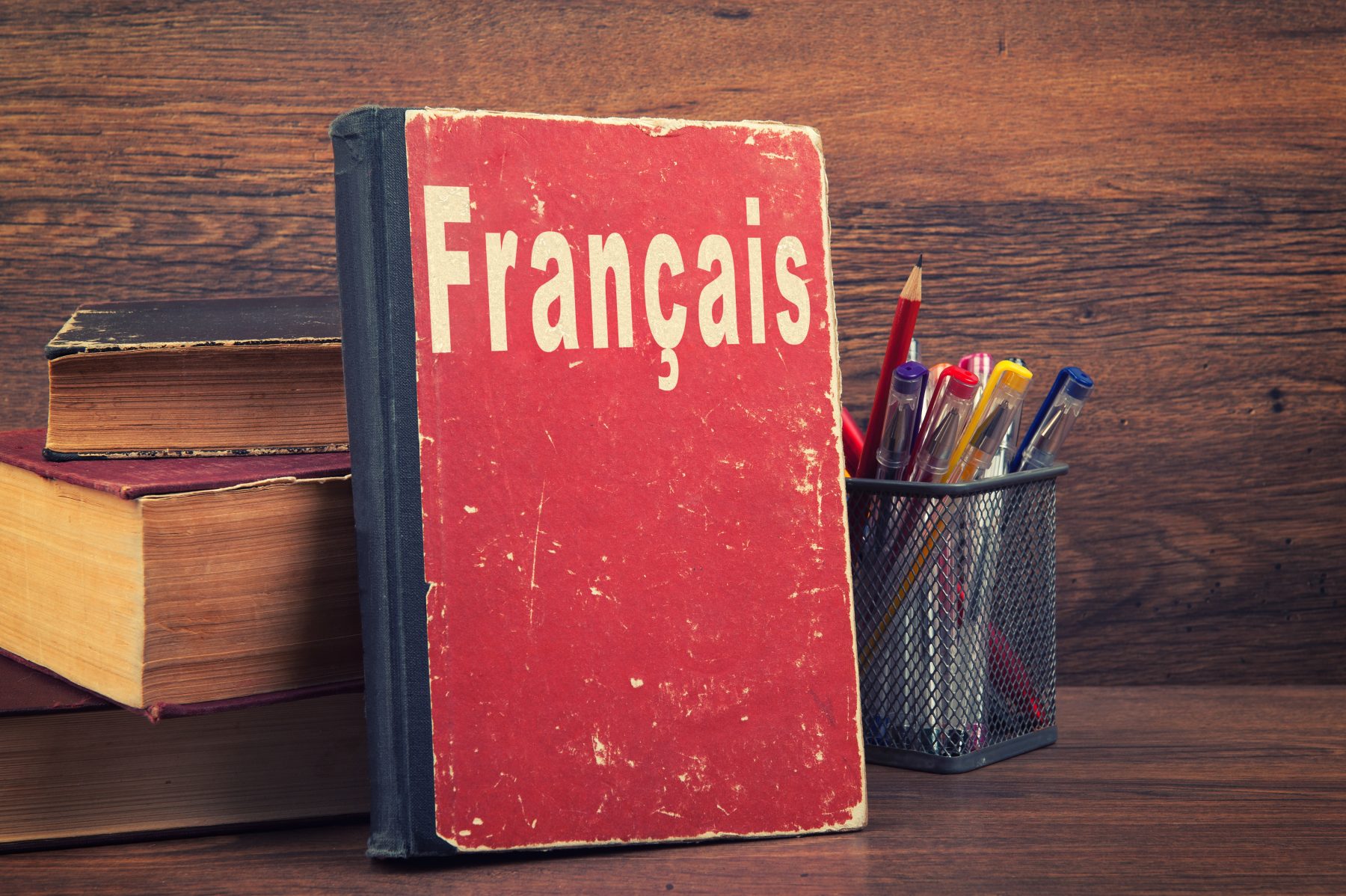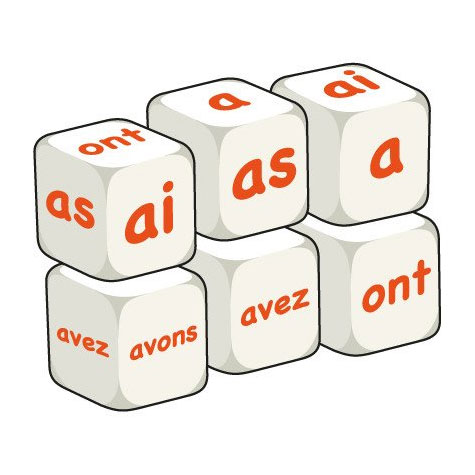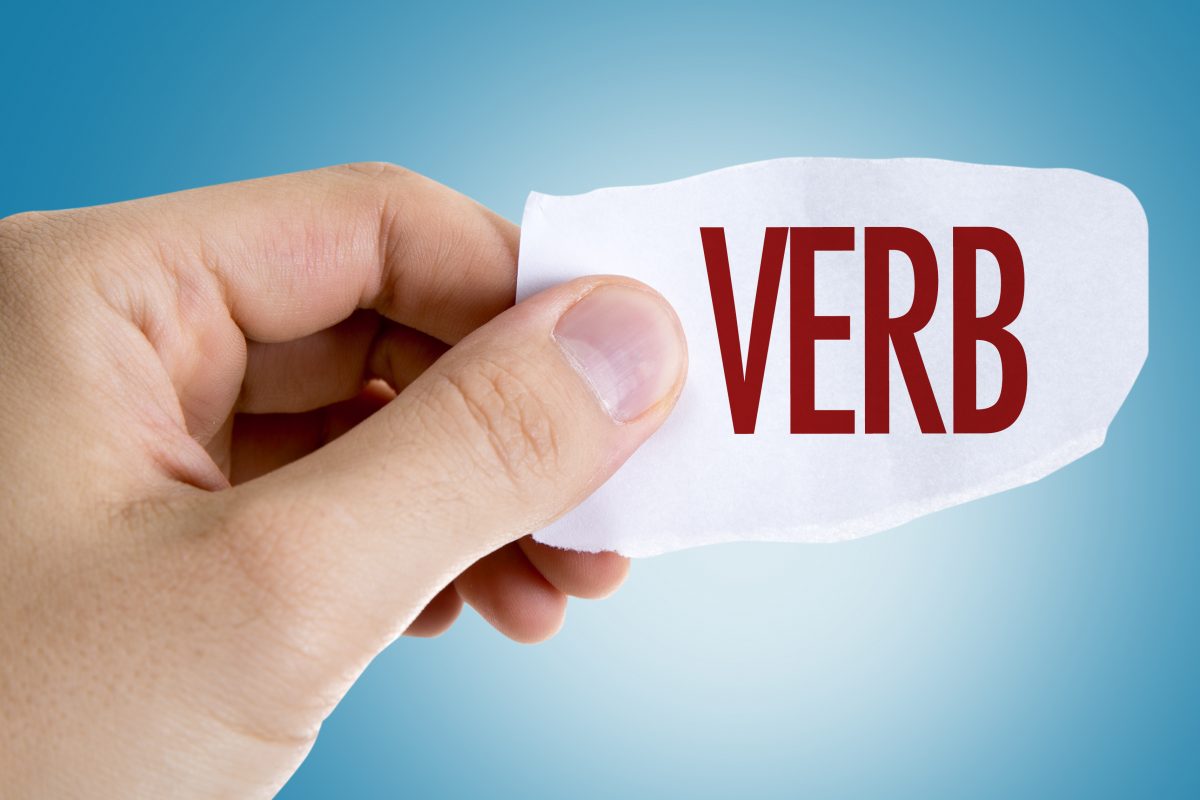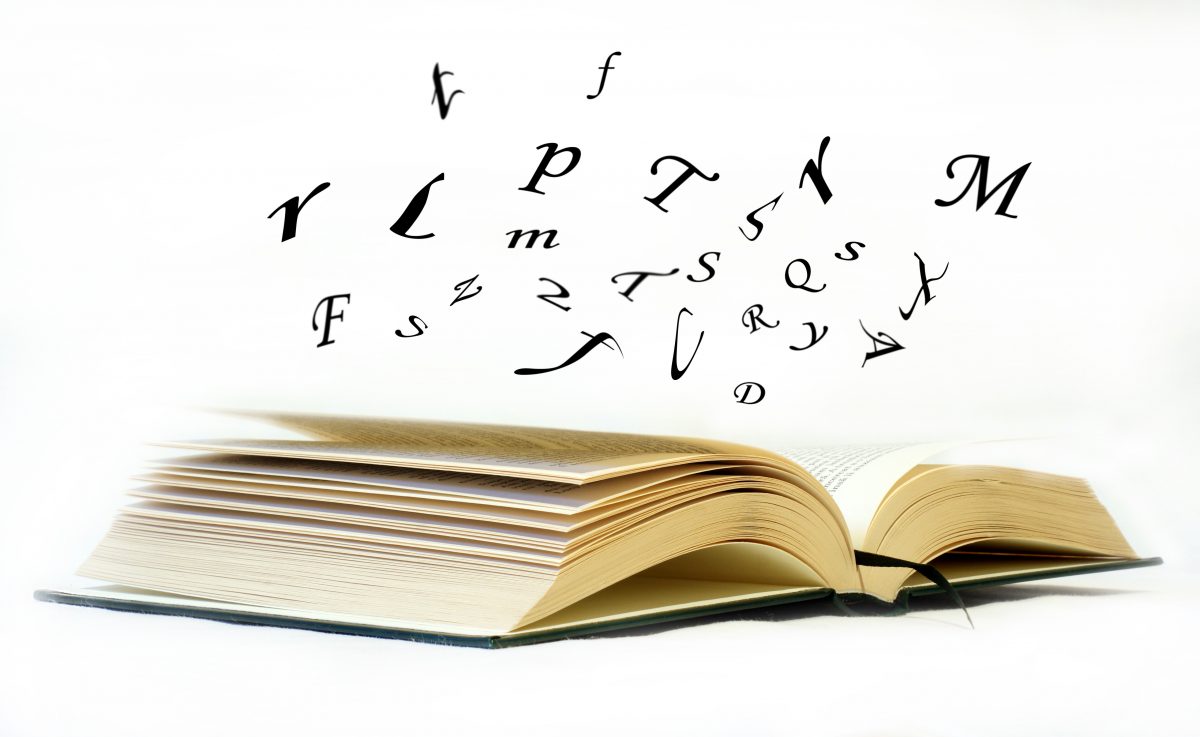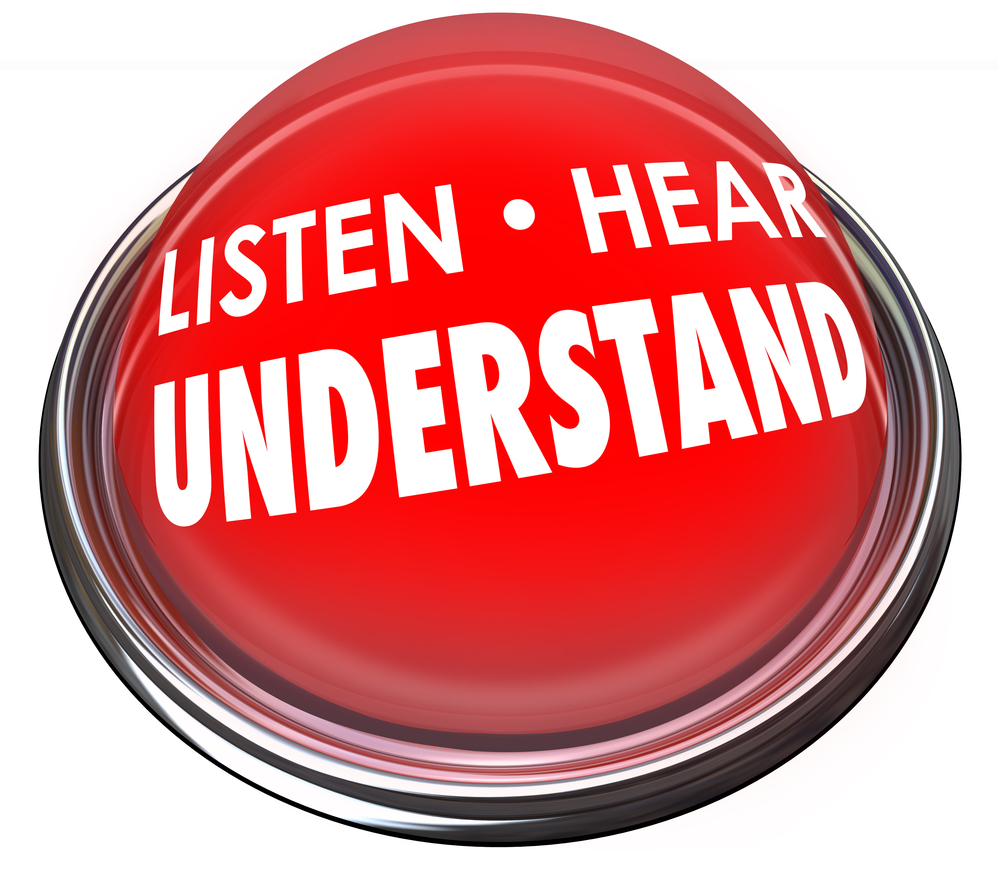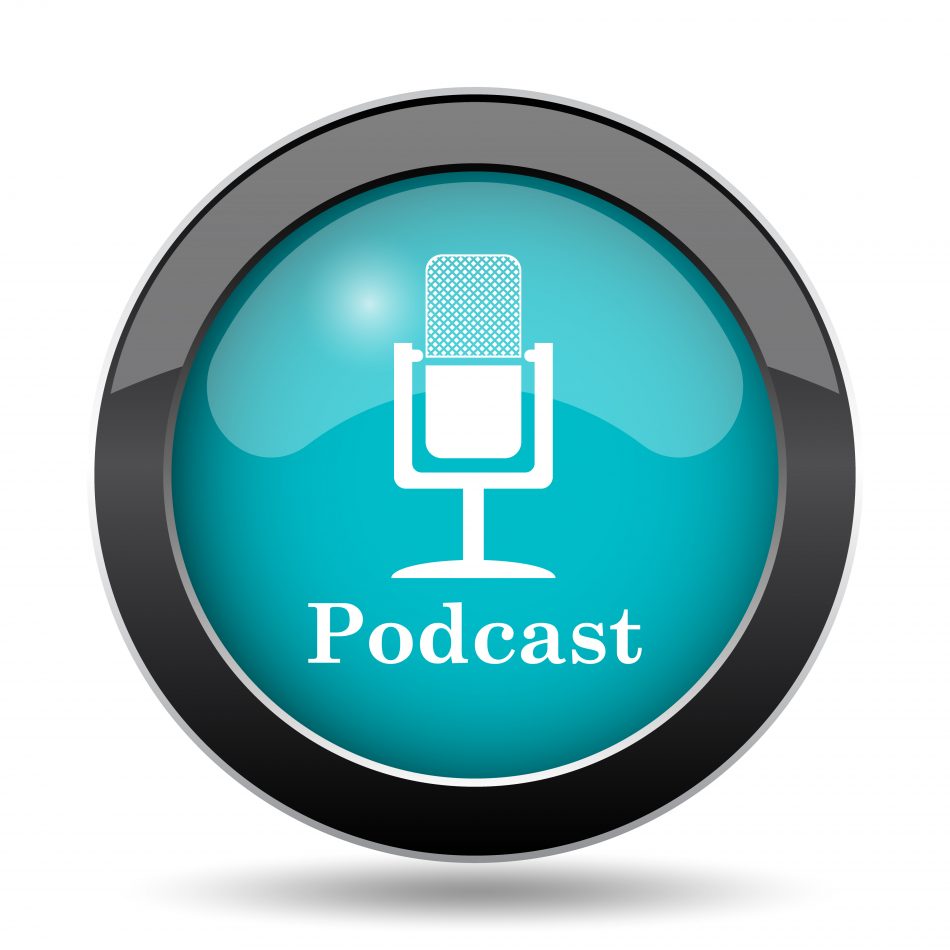Learning French, or any language for that matter, means you will have to dive back into grammar.
Maybe you actually love grammar (and that’s great!) but maybe, like most people, you find it rather complicated, if not boring.
I can understand that even though I’m a bit of a grammar fan.
Still, it is crucial for you to be clear with some important grammatical points. Adverbs are one of them.
Adverbs? What are these things?
Okay, so it’s probably best to start from the beginning and to give you the definition of an adverb.
Ready for our grammatical adventure? Let’s go!
-
Adverbs is English
- a) Definition of an adverb
An adverb is a word that modifies another adverb, a verb (an action word such as run or swim) or an adjective (a descriptive word such as nice or funny).
→ How do adverbs change verbs?
They give more information about the action.
Have a look at the following examples:
- She sings.
- She sings beautifully.
Can you see how the adverb beautifully describes the action (singing)?
→ How do adverbs change adjectives and other adverbs?
Just like they give more information about the action when they describe a verb, adverbs provide more information when they modify another descriptive word (adjective or adverb).
Check out these examples:
- He eats very slowly.
In this sentence, both very and slowly are adverbs.
Slowly describes the verb eats → How does he eat? Slowly.
As for very, it modifies the adverb slowly → How slowly does he eat? Very Slowly.
- This pie is extremely delicious.
In this sentence, the adverb extremely modifies the descriptive word (the adjective) delicious → How delicious is the pie? Extremely.
-
b) Identification of an adverb
Before we ask ourselves how to identify an adverb in a sentence, let’s remind ourselves what are parts of speech. These basically are categories in which words fall into depending on their use and functions. There are eight major parts of speech in the English language (same for the French language).

So now, do you know how to recognize an adverb?
Well, it’s rather simple: if a word describes one of these three parts of speech – verb, adverb and/or adjective- then it is an adverb. Easy or easy? Very easy!
There is another way to easily recognize an adverb in English. They usually, but not always, end in -ly (-ment in French but we will see that a bit later). There are many you can think about: happily, sadly, generously, selfishly, quickly, slowly and so on.
Finally, many high-frequency words (words that occur frequently in written material and that have little meaning on their own but that contribute a lot to the meaning of a sentence) often are adverbs. Just to name a few, there are very, much, many, more, so, less etc.
2) Adjective or adverb?
Be careful not to mistake adjective and adverbs. Very often in spoken language (if not in written one…), people use adjectives instead of adverbs.
What should you say?
- She walks slow.
OR
- She walks slowly.
Many people would agree that there is no difference and that both sentences are correct. Well, no one isn’t. Yes, the first one is wrong. Indeed, slow is an adjective and therefore cannot be used to modify a verb (adjectives modify nouns). Because it is the verb walks that is described, you have to use an adverb (slowly in this case).
3) Practice time
Have you understood this little reminder? Let’s check.
Identify the adverbs in the following sentences and say which part of speech they modify.
- Gary is very late for his appointment.
- Darren drank too much wine.
- Noah is extremely kind.
- Enzo has many great books.
Answers:
- Gary is very late for his appointment.
Very is the adverb. It modifies the adjective late.
- Darren drank too much
Too much is the adverb which modifies the verb drank.
- Noah is extremely
Extremely is the adverb modifying the adjective kind.
- Enzo has many great books.
Many is the adverb modifying great which is an adjective.
Did you get everything right? Perfect. Now, that you know exactly what an adverb is and how to identify it in English, you are ready to learn a bit more about how to use this part of speech in French.
2. Adverbs in French
1) Do adverbs have the same function in French and in English?
Yes, they do. Phew!
Just like they modify a verb, an adjective or another adverb in English, French adverbs also describe these three parts of speech.
Let’s have a look at the following examples to illustrate this.
- Je mange souvent du poisson (I often eat fish).
Souvent is the adverb that modifies the verb mange
→ quand est-ce que je mange du poisson? Souvent (When do I eat fish? Often).
- Cette robe est vraiment belle (This dress is really beautiful).
Vraiment is the adverb which modifies the adjective belle *
→ à quel point cette robe est-elle belle? Elle est vraiment belle (How beautiful is this dress? Really).
- J’ai très bien compris cette leçon (I understood this lesson very well).
Très is the adverb. It modifies the adverb bien
→ Comment as-tu compris cette leçon? Très bien (How well have you understood this lesson? Very well).
An adverb can also modify a whole sentence like in the following example:
Heureusement, je suis à l’heure (Fortunately, I am on time).
- How to form adverbs in French?
As I mentioned it previously, many adverbs end in -ment in French (just like they do end in -ly in English). Fine, but are there rules to form them? Yes, there are indeed. Let’s go through them.
- a) When the masculine adjective ends with a consonant or a silent -e, the suffix -ment is added to the feminine form of the adjective.
- Attentif (masculine form of the adjective) → attentive (feminine form of the adjective) → attentivement (adverb)
- Frais (masculine form of the adjective) → fraîche (feminine form of the adjective) → fraîchement
- Long (masculine form of the adjective) → longue (feminine form of the adjective) → longuement
- b) If the adjective ends in -ent, the adverb ends with -emment but you pronounce it -amment.
- Prudent (masculine form of the adjective) → prudemment (adverb)
- c) If the adjective ends in -ant, the adverb ends with -amment and you pronounce it -amment.
- Elegant (masculine form of the adjective) → élégamment (adverb)
- d) If the adjective ends with a vowel, add –ment to the adjective to form the adverb.
- Joli (masculine form of the adjective) → joliment
- Résolu (masculine form of the adjective) → résolument
- e) Exceptions
As you already know, the French language loves exceptions so there’s no reason why there wouldn’t be any when it comes to adverbs. Here they are:
- Vrai (masculine form of the adjective) → vraiment (adverb)
- Précis (masculine form of the adjective) → précise (feminine form of the adjective) → précisément (adverb)
- Aveugle (masculine and feminine forms of the adjective) → aveuglément (adverb)
- Enorme (masculine nd feminine forms of the adjective) → énormément (adverb)
- Gentil (masculine form of the adjective) → gentiment (adverb)
- Bref (masculine form of the adjective) → brièvement (adverb)
- Précipité (masculine form of the adjective) → précipitamment (adverb)
- Traître (masculine and feminine forms of the adjective) → traîtreusement (adverb)
- Gai (masculine form of the adjective) → gaiement or gaîment (both adverbs)
Some adjectives ending with a -u take a circumflex accent on the -u of the adverb.
- Assidu (masculine form of the adjective) → assidûment
- Continu (masculine form of the adjective) → continûment
- Cru (masculine form of the adjective) → crûment
- Placement of French adverbs
Rules regarding placement of French adverbs are rather simple. Hurray!
There are two cases: adverb’s position depends whether the adverb modifies a verb or whether it modifies another adverb or an adjective.
- a) When the adverb describes a verb
In that case, the adverb is placed after the verb as you can see in the following example:
- Il parle doucement (he speaks slowly).
→ The adverb slowly modifies the verb parle. It is therefore placed after it.
Note:
Here’s a little grammar rule for you.
When you’re using compound tenses, adverbs can either be placed between the auxiliary and the past participle or after the past participle. It usually depends which adverbs you are using.
I have gathered some adverbs for both cases to help you out. For the translation of these adverbs (and many more), check my pdf by clicking on the following link.
METTRE LE LIEN VERS LE PDF LISTE DES ADVERBES
| Adverbs placed after the auxiliary and
before the past participle |
Adverbs placed after the past participle |
| Bien | Tard |
| Mal | Tôt |
| Beaucoup | Vite |
| Peu | Lentement |
| Trop | Facilement |
| Assez | Difficilement |
| Toujours | Ici |
| Souvent | Là-bas |
| Rarement | Dehors |
| Encore | Avant |
| Enfin | Après |
| Déjà | |
| Certainement | |
| Sûrement | |
| Peut-être | |
| Presque | |
| À peine | |
| Vraiment | |
| Suffisamment |
- b) When the adverb describes an adjective or another adverb
In that case, the adverb is placed before either the adjective or the other adverb it modifies.
- Ce jeune homme est très intelligent (This young man is very clever).
→ The adverb très modifies the adjective intelligent. It is therefore placed before it.
- Il mange très doucement (He eats very slowly).
→ The adverb très modifies the adverb doucement. It is therefore placed before it.
- Different types of adverbs
As you can see on my PDF about various types of adverbs, there are many different ones.
METTRE LE LIEN VERS LE PDF LISTE DES ADVERBES
If you want to a glimpse of what they are, here are a few of them.
| Type of adverb | Description | Examples |
| Adverb of manner | They are linked to qualitative data. They tell us how something happened. | Ainsi, bien, calmement… |
| Adverb of quantity (intensity) | They are linked to quantitative data. They tell us how much or how many things there are. | Assez, autant, beaucoup… |
| Adverb of time | They tell us about time. | Aujourd’hui, après, ensuite… |
| Adverb of place | They give information about the place of an event. | Ailleurs, devant, ici… |
| Adverb of frequency | They tell us how often something happens. | Jamais, parfois, souvent… |
| Adverb of affirmation | They are used to emphasize what we are saying. | Assurément, certainement, précisément… |
| Adverb of doubt | They are used to express a doubt. | Peut-être, probablement, vraisemblablement… |
| Adverb of interrogation | They are used to ask questions. | Combien, comment, pourquoi… |
| Adverb of negation | They are used to create a negative sentence and often are adverbial phrases. | Ne…pas, ne… plus, non… |
| Linking adverbs | They are used to link sentences. They have the same role as coordinating conjunctions. | Ainsi, alors, certes… |
| Modal adverbs | They tell us aboout the attitude of the speaker. They often modify a whole sentence. | Heureusement, malheureusement, par bonheur… |
| Adverbs of logical link | Questions about reason, consequence, concession or contradiction (why? How?) are linked to this type of adverbs. | Aussi, cependant, donc… |
- Quiz about French adverbs
I hope you are now unbeatable when it comes to French adverbs. Well, let’s check!
Here is a little quiz for you to verify French adverbs hold no secrets for you anymore.
Answer the following 20 questions and see your result!
- Choose the correct adverb for each sentence. Each adverb can only be used once.
Hier / ainsi / à l’intérieur / complètement / peut-être
- _________________, Enzo et Noémie sont allés au théâtre.
- C’était une occasion spéciale, _________________ Noémie voulait se faire belle.
- Elle a essayé plusieurs robes, s’est maquillée, s’est parfumée et a _________________ perdu la notion du temps.
- Lorsque Noémie et Enzo sont arrivés au théâtre, la représentation avait déjà commencé _________________.
- Pour ne pas être en retard la prochaine fois, il faudrait _________________ que Noémie prenne moins de temps pour se préparer
- How do you form the following French adverbs?
- Rapide : _________________
- Précis : _________________
- Doux : _________________
- Simple : _________________
- Vrai : _________________
- Gentil : _________________
- Joli : _________________
- Résolu : _________________
- Enorme : _________________
- Aveugle : _________________
- Where do you place the French adverbs in the following sentences?
- Adverb : très
Elle a bien mangé → _________________
- Adverb : vite
Ce chien court → _________________
- Adverb: vraiment
Il fait beau → _________________
- Adverb: trop
Il est bavard → _________________
- Adverb: bien
Elle a dormi → _________________
Answers
- Choose the correct adverb for each sentence. Each adverb can only be used once.
Hier / ainsi / à l’intérieur / complètement / peut-être
- Hier, Enzo et Noémie sont allés au théâtre.
- C’était une occasion spéciale, ainsi Noémie voulait se faire belle.
- Elle a essayé plusieurs robes, s’est maquillée, s’est parfumée et a complètement perdu la notion du temps.
- Lorsque Noémie et Enzo sont arrivés au théâtre, la représentation avait déjà commencé à l’intérieur.
- Pour ne pas être en retard la prochaine fois, il faudrait peut-être que Noémie prenne moins de temps pour se préparer.
- How do you form the following French adverbs?
- Rapide : rapidement
- Précis : précisément
- Doux : doucement
- Simple : simplement
- Vrai : vraiment
- Gentil : gentiment
- Joli : joliment
- Résolu : résolument
- Enorme : énormément
- Aveugle : aveuglément
- Where do you place the French adverbs in the following sentences?
- Adverb : très
Elle a bien mangé → Elle a très bien mangé.
- Adverb : vite
Ce chien court → Ce chien court vite.
- Adverb: vraiment
Il fait beau → Il fait vraiment beau.
- Adverb: trop
Il est bavard → Il est trop bavard.
- Adverb: bien
Elle a dormi → Elle a bien dormi.
So, what is your score? Got it all right? Well done you!
Side Note: Want a light introduction to French Courses Online? Check Out Our French Courses Online for Beginners
You can now happily talk boastfully to your friends about your new knowledge on French adverbs!
Read Next: The Beginner Guide to French Vocabulary

